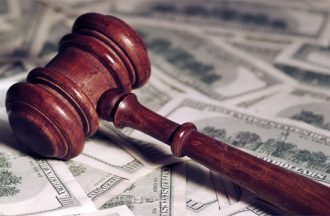
If you’re a business owner facing bankruptcy, you probably have some questions. First and foremost, you’re probably asking what the difference between personal and business bankruptcy is and which one you need to file for. So let’s start by addressing what each of those is.
Personal bankruptcy is when you request that a court declare you unable to pay back your debts or grant you a repayment plan to allow you to pay the debt over time. Business bankruptcy is very similar, but you need to determine which version of it you’re eligible for.
Those are very simple explanations of each process, so let’s go into them in more detail. Here’s what you need to know about personal vs. business bankruptcy.
Personal Bankruptcy For Small Business Owners
If you’re a small business owner, filing for a Chapter 7 bankruptcy can help you rid yourself of liability for both business debt and personal debt. This will allow you to close the business and move on. So what makes you eligible for a Chapter 7, and what exactly does it do?
Eligibility
To be eligible for Chapter 7 as a small business, you must meet certain guidelines.
- 51% or more of your debts must be from your business dealings.
- Your income for the last six months must be lower than the average for your state. In a state like Mississippi, you need to make less than $53,000. In Connecticut, you need to make less than $99,000.
- If your income is more than the average, you’ll have to pass the Means Test. This involves determining your amount of disposable income over the next five years, so they can see if you can pay back your debt.
It’s important to remember that even if you are granted bankruptcy, some debts can not be cleared. If you owe back taxes, you’ll probably have to make peace with the IRS on your own.
Business Bankruptcy For Small Businesses
If you’re a business owner wanting to declare bankruptcy only for your business, or with the opportunity to keep your business open, you may want a Chapter 11 or Chapter 13 bankruptcy. Here’s what’s important to know about each one.
Chapter 11
Chapter 11 is for business owners who’d like the chance to reorganize their business. This allows you to remain open and functioning while you work out a payment plan for your creditors.
When you file for Chapter 11 your business goes into a protection status that prevents you from being sued until you’re financially healthy again. Anyone wishing to sue you will have to be paid through your repayment plan or wait until your protected status is lifted.
Chapter 13
Chapter 13 is suitable for most individuals and sole-proprietors. This one also allows you to remain in business while you pay back your debt. It also protects you from losing personal property like your house, to pay your business debt.
To be eligible, you’ll need to prove you have the income to pay back your debt over the next three to five years.
The main difference between these two options is the eligibility requirements. Almost any business can file Chapter 11 but only a business with stable income and very specific debt limits may file Chapter 13. Your attorney will be able to help you determine which is best.
Key Takeaway
People file bankruptcy every day, and for various reasons. Job loss or reduced income is a major reason why people and businesses file. Just look at the state of Mississippi… It’s one of the top states facing the greatest social and economic impact from the coronavirus. Not only are the residents there fighting to keep their homes and businesses safe, but they’re also battling food scarcity, of all things. That reason alone is why so many Mississippi residents are turning to Mississippi-based bankruptcy attorneys to get out of their financial turmoil, both personally and for their businesses.
Bankruptcy isn’t a bad thing no matter where you live or where your business is based because it can rid you of some or all of your debts. Which Chapter is right for you depends on your business and personal income. If you’re thinking of filing for bankruptcy, you need to hire a lawyer to help you determine which chapter is best for your situation.
The decision to file for bankruptcy can be a tough one to make, but now you know a little more about your options. Hire an attorney, and make a plan today so you can get your business debt settled.








